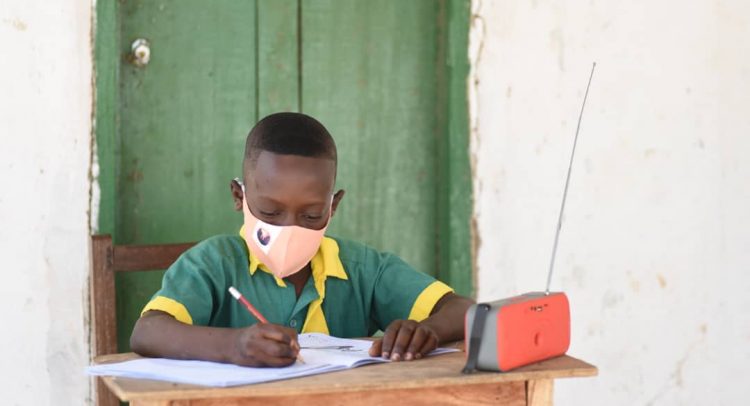The Mastercard Foundation and UNICEF have launched a-two-year $4.6 million programme to provide quality and equitable learning opportunities for more than nine million children in Ghana.
The programme which commenced in June 2020 and runs until May 2022, will support the implementation of virtual and distance learning through radio, SMS, and online learning platforms to engage with GES-approved coursework and materials and screen time with tutors.
The partnership will ensure children in remote locations or without access to smart devices also benefit from lessons via community radio stations and SMS.
UNICEF Ghana Representative, Anne-Claire Dufay, in her remarks said learning has been disrupted for approximately nine million girls and boys in Ghana since the outbreak of COVID-19 in March.
“While some children have returned, nearly eight million children partially missed out on their third term of this academic year. For the most marginalized, this can lead to negative consequences which may last a lifetime,” she said.
Mastercard Foundation’s Regional Head for Western, Central and Northern Africa, Nathalie Akon Gabala also noted that the pandemic has had a multi-faceted impact on education, but those who’ve borne the brunt of its adverse effects are children from vulnerable households and girls.
“To ensure that the pandemic does not exacerbate existing inequalities, this program is designed to enable learning in the short-, medium-, and long-term—including preparing for potential future crises.
Even when schools re-open, we will need to pay special attention to the needs of children who may have fallen further back than their peers and those who are likely not to return. This partnership enables us to safeguard the future of school children in Ghana by ensuring their education does not fall through the cracks,” she said.
Director-General of Ghana Education Service, (GHS) Prof. Kwasi Opoku-Amankwa, in a brief remark acknowledged the negative impact of Covid-19 on learners, especially for the vulnerable ones.
“An important lesson the pandemic has taught all of us is that we need to adopt measures that will enable children to learn at home through remote and distance learning service delivery models during crisis. At the same time, we need to work together to ensure a quick recovery of the education sector in a manner that guarantees the safety of all learners and staff,” he said.
He therefore noted that the GES is working on building a system that will be resilient enough to withstand future shocks and that allows for continuous learning for all children always.
“Any support in this direction, such as the one coming from this partnership, is well appreciated,” he added.
By Jamila Akweley Okertchiri


